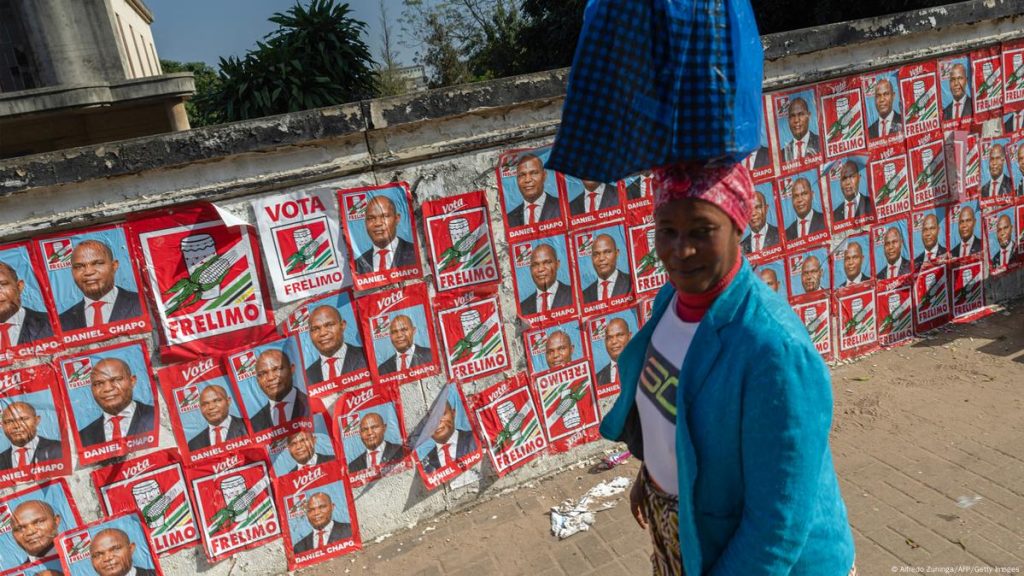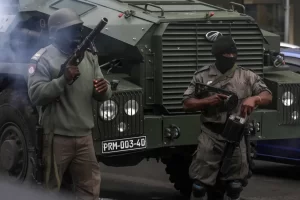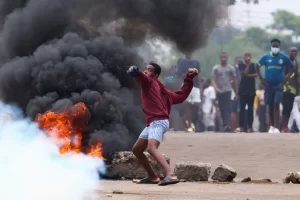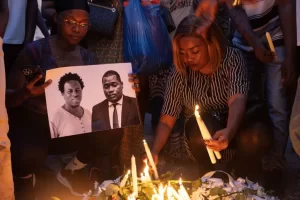Mozambique election results being doctored – EU
3 min read

Election observers from the European Union (EU) have raised serious concerns about the integrity of Mozambique’s electoral process, claiming that certain voting results have been manipulated. This development comes as the nation grapples with increasing political unrest, notably following the tragic deaths of key political figures.
On Monday, thousands of demonstrators joined protests led by independent presidential candidate Venâncio Mondlane, who has accused security forces of being responsible for the fatal shooting of his lawyer, Elvino Dias, along with another political official, Paulo Guambe, last Friday. Security forces have denied these allegations, maintaining that they acted lawfully.
Official results from the general election held on October 9 are expected to be released by Friday. However, the EU observer mission reported “irregularities during counting and unjustified alterations of election results at polling station and district levels.” They are urging electoral bodies to ensure a transparent and credible tabulation process that allows for the traceability of results.

In addition to the EU’s findings, the International Republican Institute, based in the U.S., has also reported concerning practices, including vote-buying, inflated voter rolls in areas dominated by the ruling Frelimo party, and voter intimidation.
Mozambique’s electoral commission has faced further criticism after its website, which is supposed to publish national results, was reportedly subjected to a cyber-attack last month. As a result, the website remains inactive, preventing the public from accessing crucial information about the election.
Venâncio Mondlane, 50, who has garnered support from the opposition party Podemos, has prematurely declared victory in the election. He insists that the assassination of his aides was politically motivated, describing it as a crime committed by the defense and security forces. “There’s no doubt about it. The special forces killed Elvino [Dias],” Mondlane stated, rallying support across various cities to protest against the violence and alleged election fraud.

In Maputo, the capital, police responded to the protests with live ammunition, tear gas, armored vehicles, and police dogs, attempting to disperse crowds that had gathered near the site of the shootings. Demonstrators erected barricades and set fires to block roads, while footage from the scene showed Mondlane and journalists scrambling for safety as gunfire erupted.
Reports from local media indicate multiple arrests during the protests, with at least 16 individuals hospitalized due to injuries sustained. While businesses temporarily closed their doors in response to the unrest, many began reopening on Tuesday. The funeral for Elvino Dias is scheduled for Wednesday, and Mondlane has called for additional protests on Thursday and Friday.
Pressure is mounting on the Mozambican government to identify those responsible for the killings and ensure justice. Former President Armando Guebuza, alongside the UN, the U.S., and the EU, has strongly condemned the violence. Notably, celebrated Mozambican author Mia Couto has described the killings as a “crime against the nation.”

Since gaining independence from Portugal, Mozambique has been governed exclusively by the Frelimo party. This election marks a significant moment, as President Filipe Nyusi is stepping down after reaching the two-term limit, guaranteeing the emergence of a new presidential candidate. The Frelimo nominee is 47-year-old Daniel Chapo, who faces competition from Mondlane, Ossufo Momade—former rebel commander and current leader of the main opposition party Renamo—and Lutero Simango of the Mozambique Democratic Movement.
As the political climate in Mozambique becomes increasingly tense, the integrity of the electoral process and the safety of its citizens remain at the forefront of national and international concern. With the official results looming, the calls for transparency and justice resonate louder than ever in the country.